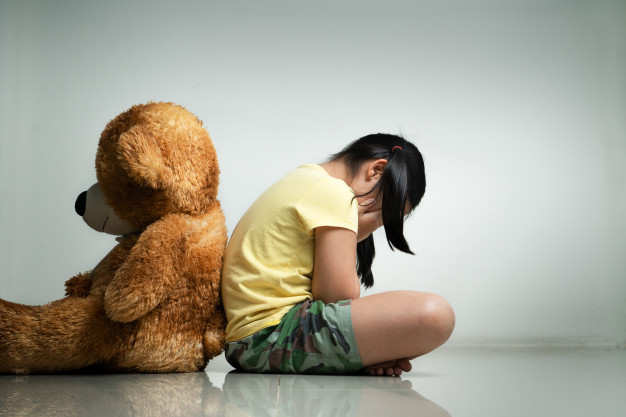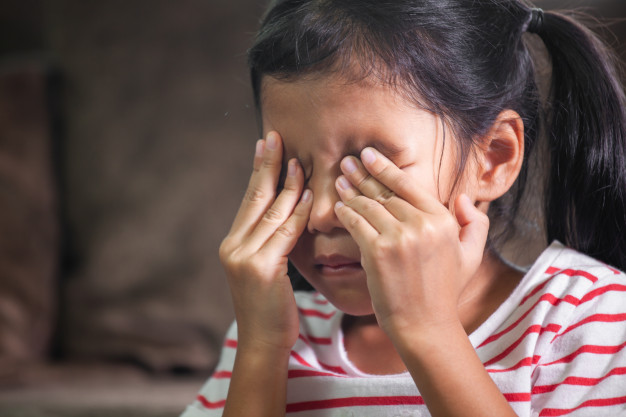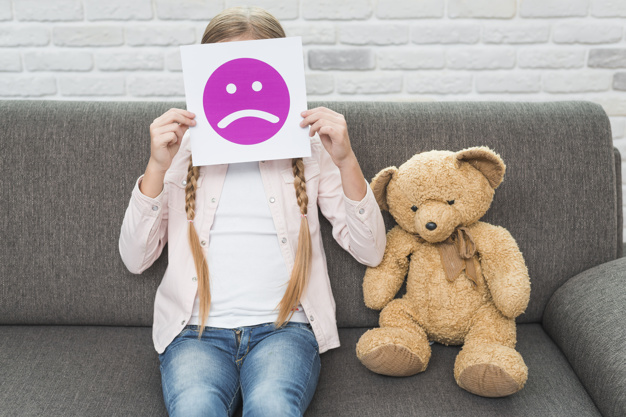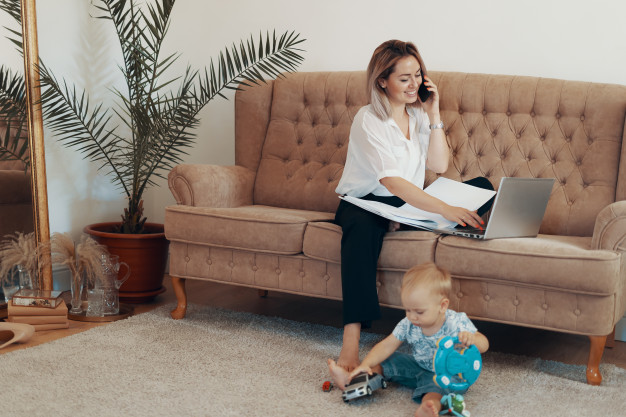Covid-19 has bought various challenges for us to face both personally and professionally, especially trying to juggle working from home and childcare. With school and pre-school closures happening all the time and people being encouraged to work from home where possible, parents have had to multitask more than ever.
Despite the vaccine having released in recent weeks, unfortunately, there is still a long way to go before a sense of normality is restored.
For many, working from home will continue for the foreseeable future and childcare, such as nannies and pre-schools, will remain closed.
So, what does this mean for childcare in the future? Has working from home changed childcare forever? We explore this below.
Online Software

With the internet playing such an important and large role in today’s society, this has meant that teachers and parents can work together remotely to help their children through their essential stages of development and growth.
Teach Kloud speeds up processes, keeps everything together, and enhances communication. The success of this type of software has not only made it easier for parents to look after their children at home whilst working remotely, but it also has the potential to change childcare moving forward too.
Bonding and Attachment

Despite the stress that many parents have felt having to hold down a job whilst simultaneously caring for their children at home, many parents have enjoyed the last few months.
With their children around 24/7, it has allowed for more bonding time, as they help them with their spellings, read more stories and even enjoy pretend play together.
Whilst children are at their childcare during the day when their parents are working, mums and dads are missing out on some of the vital stages of their child’s development. However, being at home has allowed them to be a part of this and help them grow.
What’s more, the more time they have spent together, children and their parents have grown a stronger bond and therefore, attachment to one another.
Although this can be positive and beneficial for relationship building, some parents are concerned that their children have become too attached. They haven’t experienced as much of the outside world and the learning curves crucial to this development stage.
Affordable and Easier

Although some workdays can be difficult whilst caring for little ones simultaneously, childcare and working from home, have also gone hand in hand.
Without paying for someone else or a pre-school to take care of their children, parents have saved money. Plus, because they don’t need to take their children to and from childcare, not only has this benefited their bank accounts by using less petrol or public transport, but it’s also made morning and evening routines easier.
Instead of getting the children up early and rushing them to childcare before getting to work, the morning routine is now much smoother, and everything can start a little later. This is creating better home environments and relieving some stress from parents.
So, what do you think? Will working from home change childcare forever? Or, will we see things return to normal once the country starts to get back onto its feet in the future?
Child Care Abuse

Sending your child to a daycare center all day can be a daunting task. You want to make sure that he has a capable, attentive hand, and not with someone who might treat your child in a potentially harmful way. You’ll also want to make sure they are insured through a reputable company like dcins.com . Yet, despite the best efforts of many people, sometimes they end up sending their children to centers or caregivers who abuse them orally or physically. It is important that you understand any warning signs your child may have issued that indicate he or she is being harmed while out of your care.
What Causes Abuse?

First, it is important for you as a parent to know the various types of child abuse available. These include verbal abuse, physical abuse, sexual abuse, and neglect.
- Verbal or Emotional Abuse: Directing harmful words to the victim causing emotional or mental damage
- Physical Abuse: Intentionally causing physical injury to another individual – in this case, your child
- Unrelated Sexual Abuse: Shows the victim’s unintentional pornographic behavior, whether through videos, photos, or real-life demonstrations
- Contact Sexual Abuse: Forcing the victim to perform or perform sexual acts either alone or with another individual, or touching the victim sexually
- Ignore: Does not provide attention, food, shelter, or a safe environment for children
All of these forms of abuse can be equally damaging to a child, either physically or psychologically. Do not let your child fall victim. Watch the warning signs from the beginning so you can protect your children.
What Are the Signs of Abuse?

While caregivers, babysitters, or babysitters may not give any indication that they are abusing your children, there are still many different signals that your child may signal that something is wrong with him or her. Note the following instructions:
- Changes in normal behavior – becoming restless or acting more
- A changeable nature – often crying and arguing
- Arrive home with new injuries daily or weekly
- The desire not to go to the daycare center, and to quarrel when it is time to leave
- It should not stick to you when you leave it alone
It is important that all parents be aware of these warning signs. Do not let your child fall victim to child abuse. The scars that arise as a result of such treatment will stick to them forever.
For more information on child abuse, what you can do to prevent it, or how to take action against individuals or groups who have abused your children, please visit our site.

